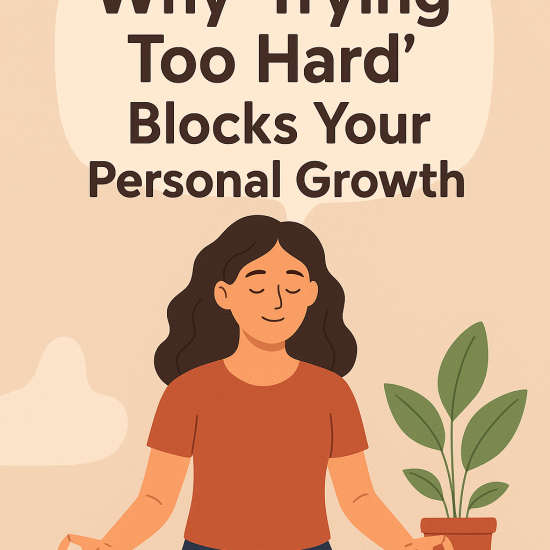I remember the first time I spoke up in a meeting with senior executives. My heart was pounding. My voice? It almost caught in my throat. But I said what I needed to say and to my surprise, they listened. That moment changed how I saw myself. Not because I was suddenly fearless, but because I realized confidence isn’t about being the loudest in the room; it’s about trusting yourself enough to speak, even when your voice shakes.
This is the kind of balance that a career coach helps you find the sweet spot between being assertive and staying grounded. Because confidence isn’t arrogance, and being humble doesn’t mean being invisible.
If you’re looking to build unshakable confidence without turning people off, you’re in the right place. Let’s explore how to lead and communicate with balance, strength, and authenticity skills that a life and career coach or career transition coach can help you master.
Why Confidence Matters in Your Career
Confidence is more than a nice-to-have—it directly impacts career growth, leadership opportunities, and how others perceive you. Employers are drawn to professionals who can articulate their ideas, stand firm under pressure, and collaborate with clarity. But there’s a fine line: too much bravado can come across as arrogance, while too little assertiveness can make you invisible.
That’s where working with a career and life coach becomes powerful. Coaching is not about pushing you to become someone you’re not it’s about helping you access the version of yourself that already exists beneath self-doubt.
The following strategies can help you build that balance, whether you’re moving into leadership, navigating a promotion, or considering a career transition.
1. Start with Self-Compassion, Not Self-Criticism
Most professionals think confidence comes from perfection: nailing every presentation, impressing every boss, and landing every deal. But in reality, real confidence is forged in the quiet moments when you choose not to tear yourself apart.
Think about this: how often have you left a meeting replaying every word, cringing at things nobody else noticed? Many clients who work with a life and career coach share that their biggest struggle isn’t external challenges it’s internal criticism.
A simple shift can change everything: next time you’re harsh on yourself, ask, “Would I say this to a friend?” Probably not. Confidence begins when you replace self-criticism with self-compassion. A supportive inner dialogue creates resilience and empowers you to take risks without fear of failure.
2. Assertive vs. Aggressive: Know the Difference
You don’t have to bulldoze to be bold.
Assertiveness means expressing your needs and opinions respectfully. Aggressiveness bulldozes over others. A career coach may guide you through role-playing exercises or self-awareness tools to help you master this distinction.
Here’s a simple breakdown:
| Assertive | Aggressive |
|---|---|
| “I feel this timeline is tight; can we discuss adjusting it?” | “This deadline is ridiculous—we’re not doing it.” |
| “I’d like to contribute to this project.” | “I should be leading this. No one else can do it right.” |
The key difference? Assertiveness values both your voice and others’. It builds trust instead of resistance. Leaders who embrace this approach are respected, not feared.
3. Align Your Body Language with Your Intent
Think about a leader or mentor you admire. Chances are, they didn’t just sound confident they looked confident. That’s the power of body language.
Small shifts in posture and presence can change how others perceive you and how you feel about yourself. A career transition coach may even encourage clients to practice posture and gestures in front of a mirror. It may feel silly, but it works.
Practical body language tips:
- Stand tall. Good posture sends signals of self-assurance.
- Make eye contact. It builds connection and conveys honesty.
- Use open gestures. Keep your hands visible and intentional.
- Smile genuinely. People are drawn to warmth and authenticity.
Confidence isn’t only in what you say it’s in how you carry yourself.
4. Speak from Purpose, Not Performance
If your goal is to impress, you’ll feel pressured. If your goal is to connect, you’ll feel present.
Too often, professionals fall into the “performer trap” thinking they must always appear polished, powerful, and perfect. But people resonate with authenticity more than performance. You don’t need to have all the answers. You just need to be real.
When I work as a career and life coach, I encourage clients to anchor their communication in purpose. Ask yourself: Why am I saying this? What do I want to give, not just get?
When you speak with purpose, your confidence becomes magnetic because people can feel the intention behind your words.
5. Boundaries Build Confidence
Confidence isn’t only about speaking up; it’s about knowing when to say no.
Maybe you’ve taken on too many projects because you didn’t want to let anyone down. Maybe you’ve stayed silent when a colleague crossed a line. Maybe you’ve said “yes” while secretly resenting it later.
Boundaries aren’t barriers. They’re doors that protect your energy, time, and values. A life and career coach often helps clients define these boundaries clearly without guilt.
Examples of confident boundaries:
- “I can’t take on another project right now without compromising my current work.”
- “I prefer to be addressed professionally in meetings. Can we agree on that?”
Boundaries don’t make you difficult they make you effective.
6. Stop Comparing: Start Owning Your Path
Nothing crushes confidence faster than comparison.
Scrolling LinkedIn, hearing colleagues’ wins, or seeing others advance can leave you feeling behind. But comparison is built on assumptions and assumptions are rarely accurate. You don’t see the late nights, rejections, or private doubts behind their success stories.
One of the biggest breakthroughs that happens with a career coach is the shift from asking, “Am I as good as them?” to asking, “What do I want for myself?”
Your career is yours alone. The path doesn’t need to look like anyone else’s.
7. Confidence Is a Skill—Practice It
Confidence isn’t a gift you’re born with it’s a skill you practice. And like any skill, it gets stronger over time. You’ll make mistakes. You’ll stumble. You’ll have awkward conversations. But every attempt makes you stronger.
One client I worked with as a career transition coach was terrified to give a presentation to senior leadership. We practiced together first with notes, then without. On the day, she was still nervous, but she delivered successfully. Afterward, she told me it was the proudest moment of her career.
That’s what growth looks like: courage built one step at a time.
Lead with Strength and Humanity
You don’t need perfection to be powerful. You don’t need arrogance to be assertive. And you don’t need to erase doubt to lead with clarity.
The journey to confidence is deeply personal. It’s not about becoming someone else it’s about becoming more of yourself. A little braver. A little bolder. A little more honest about what you want and deserve.
Wherever you are on that path, know this: you’re not alone. Many professionals walk the same journey some in silence, some with mentors, and some with trembling hands but strong hearts.
When you lean into this process, seek support, and trust yourself, you’ll discover that confidence is not about overshadowing others. The most powerful kind of confidence is the kind that makes space for others while standing firmly in your own truth.
Why Work with a Career Coach?
If you’re serious about building confidence, communication skills, and leadership presence, working with a career coach or career transition coach can accelerate your growth.
- A career and life coach helps you identify the patterns holding you back.
- A life and career coach provides accountability and perspective.
- A career transition coach supports you in navigating changes—whether shifting industries, moving into leadership, or re-entering the workforce.
Coaching isn’t about fixing you it’s about empowering you to own your journey with clarity and confidence.
Confidence is not arrogance. Assertiveness is not aggression. And humility doesn’t mean being invisible.
Building confidence is about showing up as your best self authentic, grounded, and courageous. With guidance from a career coach, life and career coach, or career transition coach, you can build the kind of confidence that strengthens relationships, opens opportunities, and creates lasting impact.
So, whether it’s speaking up in a meeting, setting clear boundaries, or navigating a big career change, remember this: confidence is built, not born. And with the right support, you can build it too.





